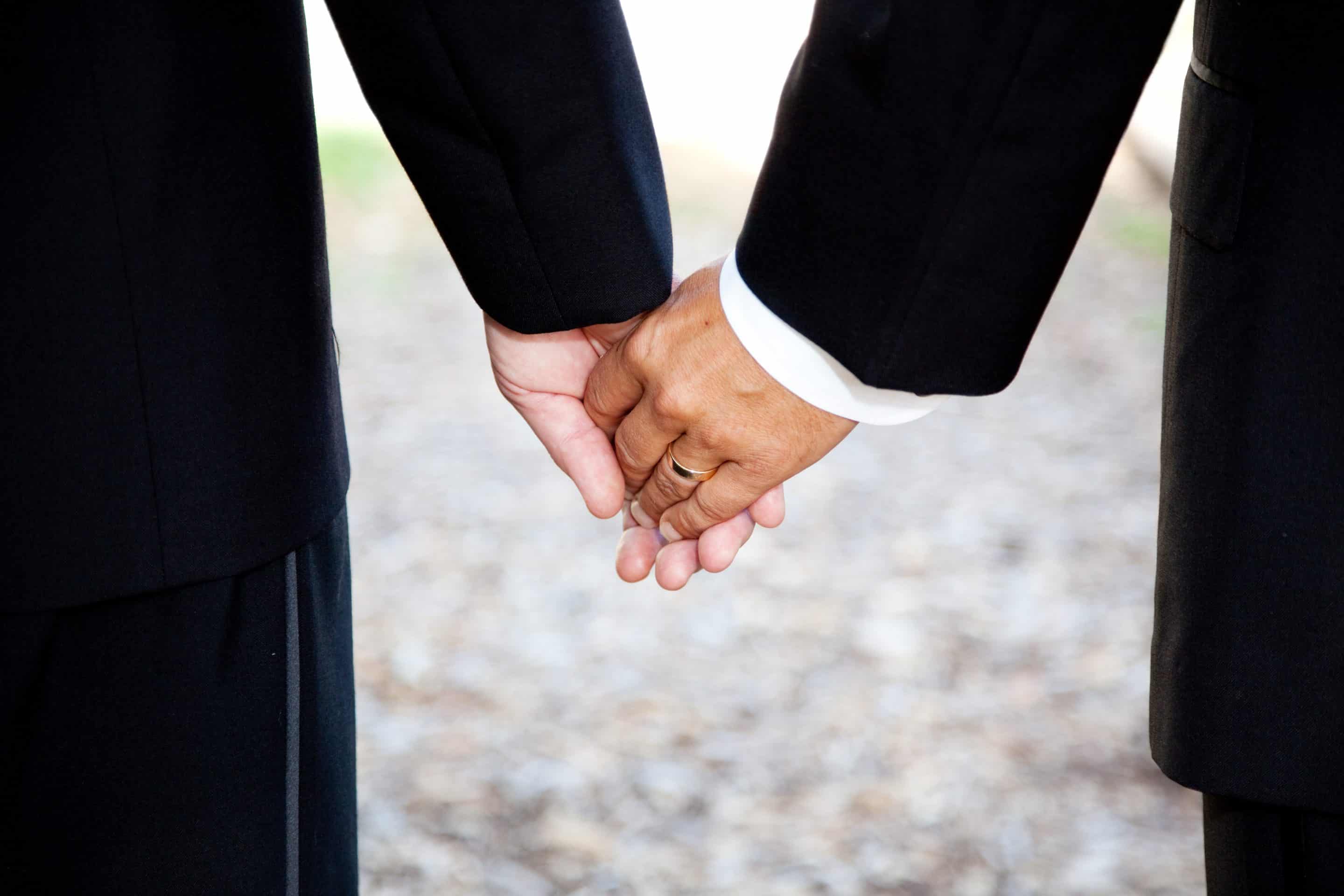In this article we outline the process by which you end a civil partnership, known as dissolution, and its similarities and differences to the standard divorce procedure.
If you are facing a divorce or dissolution give us a call on 020 3795 9020, we can help. Furthermore, you can email us at info@lgbtlawyers.co.uk.

What is a civil partnership?
In December 2005, the UK introduced civil partnerships. Designed to mirror a marriage, civil partnerships presented a method for same-sex couples to enter a legal union and receive the same legal recognition as married couples.
Since the introduction of civil partnerships, the UK legislation has seen several updates. 2013 marked a historic moment for the LGBT community with the legalisation of same-sex marriage and in 2019, the law surrounding civil partnerships was updated, allowing opposite-sex couples to make use of the process.
Couples wishing to enter a civil partnership must be over the age of 16 and not closely related – you must also ask for permission from a parent or guardian if you are under the age of 18.
The benefits of a civil partnership
Similarly to a marriage, civil partnerships offer several benefits, including:
- Potential tax advantages, such as inheritance tax exemptions, or the ability to transfer assets to each other tax free
- The right to inherit each other’s property, or make claims for financial support in the event of a separation
- Shared parental rights or the option to adopt a child jointly
- The option to apply for a residence visa, if one partner lives outside of the UK
- The ability to make decisions on behalf of their partner in the event of illness or injury
- For lesbian or gay couples, both birth and non-birth parents can appear on the birth certificate
If you need help or advice in relation to any of the proposed benefits listed above, get in contact with us today to connect you to a family law lawyer. Give us a call on 020 3795 9020, we can help.
What is the difference between marriage and civil partnerships?
Civil partnership and marriage are much the same in their legal recognition and practice, but with some differences:
- Marriage legally requires marriage vows, whereas all you need for a civil partnership is the legal document
- Not all countries recognise civil partnerships – seek advice if you and/or your civil partner have concerns about travelling to a foreign country
- Divorce ends a marriage. Dissolution ends a civil partnership
What is dissolution?
Dissolving is essentially the formal ending of a civil partnership and follows more or less the same process as divorce. As with a marriage, you must have been in your civil partnership for at least 1 year to apply for a dissolution.
Once a decision has been made to end your civil partnership, you will make an application to the court.
Until recently, you had to state your grounds for a dissolution from 5 categories. Following the introduction of no-fault divorce in 2022, you can now apply without needing to give grounds or reasons for your decision.
The Dissolution Process
Applying for a conditional order
You can apply for a conditional order once your partner has agreed to a dissolution of your civil partnership. A conditional order is a document that outlines the fact there is no legal reason why you and your partner cannot end the civil partnership. The next stage will be applying for a final order.
If your partner disagrees with ending your civil partnership at this stage, you will both need to attend court to discuss the case so that a judge can determine whether to grant you the conditional order or not.
Children and finances come under separate applications to the application for dissolution.
Obtaining the final order
The final order is the legal document that ends your civil partnership. You can apply for it 6 weeks after you receive your conditional order.
You must finalise the split of your property and finances before you apply for the final order. However, you don’t need to finalise child arrangements at the same time.
You should apply for the final order within 12 months of receiving the conditional order. If not, the courts may question the delay, and this may affect your dissolution.
Child arrangements
How are child arrangements sorted after a civil partnership dissolution?
If there’s no agreement on who will have responsibility for the child, or children, (jointly or individually) then it’s advisable to seek out a family mediation service that will help to reach an agreement – though this agreement is not legally binding.
If partners have not agreed on where a child will live without legal assistance, civil partners can apply for child arrangement orders much like married couples can during divorce. However, both civil partners must have parental responsibility for that child to do so.
In most cases, civil partners who are present at the time of the child’s birth both have parental responsibility.
Child maintenance is separate from child arrangements and will require a Financial Provision Order.
Ultimately, the judge will consider the child’s best interests and decide who is best suited to look after them. This will include:
- Who can best meet the child’s needs
- Who the child wishes to live with
- Where the child will be safe from harm
- The child’s age, characteristics, and background
Rights to property
In the event of a dispute, you will initially divide up your rights to property through mediation. However, if you have not come to an agreement after this period then you can ask the court to decide via a financial remedy order.
You must have attended a mediation meeting before you can apply, except in mitigating circumstances.
Financial orders
Financial orders outline how you are going to divide such assets as:
- Investments
- Maintenance payments (including child maintenance)
- Pensions
- Property
- Savings
You can apply for a financial order as soon as you have started doing the appropriate paperwork for dissolution. There will be 3 stages:
- The first appointment – a short hearing with the judge to discuss your application
- Financial dispute resolution – to help you agree without the need for a final hearing
- The final hearing – if you are not able to agree in the previous stages, the judge will decide for you
Hiring a solicitor in the event of a dispute over housing and finances could save you large amounts of legal costs. If you have a case you think we could help you with, give us a call on 020 3795 9020, we can help.
How can LGBT lawyers help?
If you or a person you know is wanting to dissolve a civil partnership, it is best to seek legal advice. A solicitor that has experience in dealing with cases involving protected characteristics will be the best way forward and prevent potential financial or personal consequences.
To better understand your potential dissolution, our lawyers will first require an initial consultation to understand your case.
This will outline:
- The potential costs of your legal matter
- An overview of where you stand legally
- Your available options
Do you need advice regarding a dissolution?
If you are looking for a lawyer to help at any stage in the dissolution process, look no further. We can help you today.
SPEAK TO OUR TEAM ON 020 3795 9020



0 Comments